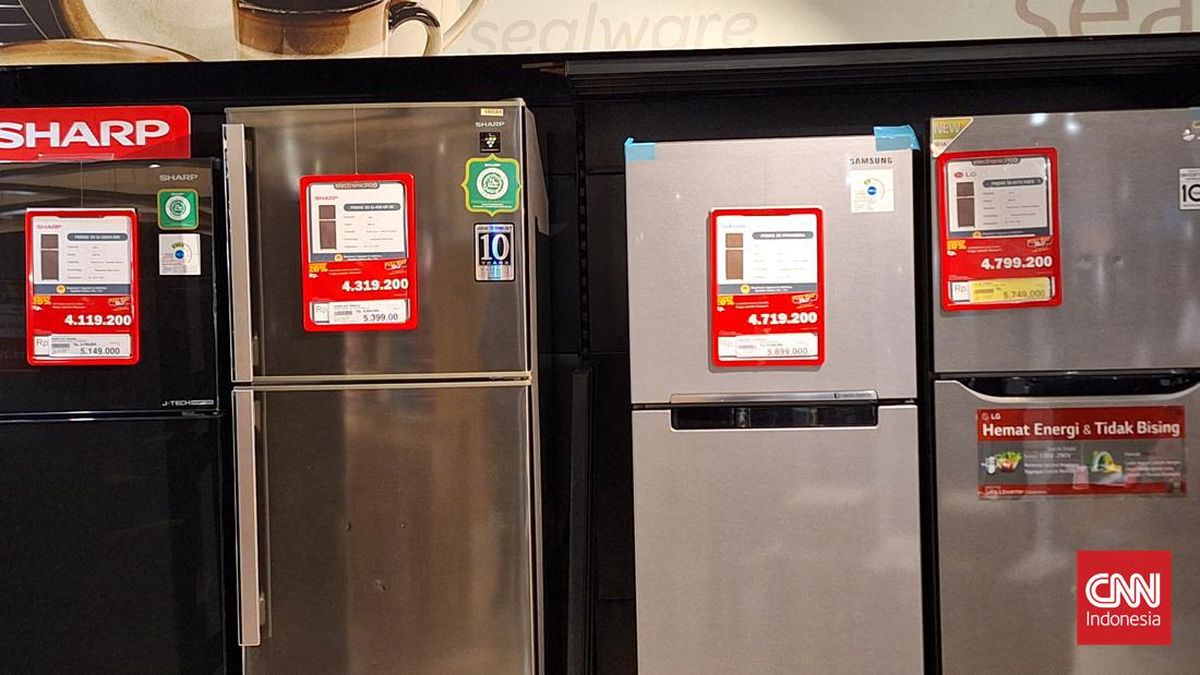Three years ago, as Christmas was approaching, Ben* was checking himself into a psychiatric ward.
He had been running a bubble tea outlet in western Sydney for just half a year, thinking the side hustle – which he ran on top of his office day job – would give his wife some work and provide the family with extra income that could go towards earlier retirement.

Several former Chatime operators claim the global beverage giant has left them tens of thousands of dollars in debt.Credit: Artwork: Matthew Absalom-Wong
The reality was the opposite, leaving Ben and his family in a crippling financial situation. After taking out a business loan to pour $290,000 into setting up the new Chatime store, slow sales meant Ben was losing money every month. His savings – and his mental health – deteriorated rapidly.
“I was falling behind with Chatime payments,” said Ben.
Every fortnight, the bubble tea chain deducted royalty and marketing fees, regardless of whether a store was making money.
“I was so traumatised, I was waking up in the middle of the night [thinking]: what if I don’t pay it on time?”
Ben is one of five current and former Chatime franchisees who allege the company used exploitative practices, including charging royalties to struggling franchisees when they failed to make sales; demanding franchisees pay for ingredients, cleaning materials and subscriptions at prices higher than standard market rates; and punishing them with fines for minor indiscretions.

Former Chatime franchisees have spoken up about company-wide practices they allege profit off franchisees.Credit: Steven Siewert
At the core of their claims is a business model where they allege Chatime profits from unprofitable franchisees – not the thriving bubble tea sales they were promised.
Five franchisees spoke to this masthead on the condition of anonymity out of fear of retribution from the company. They have also signed contracts binding them to confidentiality. They are speaking out now to warn prospective franchisees against joining the bubble tea chain, which one described as “like a trap”.
Chatime, the flagship brand of Taiwanese listed parent company La Kaffa, landed in Australia in 2009 and kicked off the local bubble tea boom. Local marketing campaigns, from the silly (“satisfy your strange”) to the seductive (“blow me”) propelled it to more than 165 outlets across the country, making it one of Australia’s largest and most recognised bubble tea chains. Its website says it is “on track to reach 200” stores.
But behind the buzz of new store openings, framed by purple and gold balloon arches and promises of free drinks, the company’s scale and revenue of more than $100 million belies the treatment of some franchisees who claim they have been left thousands of dollars out of pocket by joining the business.
The $100 million claim, made on its FAQ page, is impressive but doesn’t stack up upon closer examination. The tea chain’s 2024 revenue was, in fact, a quarter of that: audited financial accounts filed to the corporate regulator show Chatime’s revenue fell below $24.5 million, a decline from $28.5 million the year before. Losses of $195,551 in 2023 deepened to $1.6 million in 2024.
A spokesperson said these figures reflected corporate entity revenue only, representing the Australian and some international operations, and didn’t represent all franchise locations across the country.
“Chatime Australia’s total network sales are significantly higher than the corporate revenue figure, and the performance of the Australian franchise network remains strong,” the spokesperson said, declining to provide a figure.

A Chatime store on Flinders Lane, Melbourne, in April 2019. Several franchisees are leaving the bubble tea chain.Credit: Simon Schluter
Chatime has been dogged by a string of bad headlines over the years. Following a 2019 investigation by this masthead that found staff underpayments extending as far back as 2009, the Federal Circuit and Family Court fined the chain and managing director Chen “Charlley” Zhao in November 2024 for underpaying more than 150 employees. Some were paid as little as $7.59 an hour. Many of them were vulnerable junior workers and international students.
Loading
There have been other indiscretions; hundreds of reusable cups labelled “KEEP CUP” ended up in landfill in 2023 after KeepCup launched legal action over trademark infringement. Last year, the bubble tea chain pulled specialty cups with battery-powered lights from sale over concerns of non-compliance and fire risks.
‘It’s painful’
It’s not cheap to open a bubble tea store or run any franchising outlet. To set up a Chatime, you’d have to stump up more than $300,000 before a single dollar is made.
The many upfront costs that Chatime franchisees must agree to include an initial franchise fee of $50,000, an initial training fee of $10,000, as well as design and documentation fees and project management fees of $10,000 each, according to a franchise agreement seen by this masthead.
That doesn’t include store fit-out costs that start at $250,000, and the monthly deductions once the store is open.
In June 2022, Ben secured a lease on a small location in western Sydney and set up his Chatime store. He didn’t anticipate that it would be almost entirely unprofitable for the two years it was open. The financial losses left Ben about $300,000 out of pocket, and the emotional and mental toll led him to terminate the franchise agreement ahead of schedule, Ben said.
He is hoping that sharing his story will prevent his experience from being repeated by others and, along with seven other franchisees, is contemplating a class action lawsuit.
“Chatime is encouraging new store openings while current franchisees are suffering,” Ben claimed.
Three other former franchisees told this masthead their experience with Chatime has drained their life savings.
Annie*, who bought a store in 2021 and broke her three-year contract early to sell it in 2023, said she felt fearful of starting a new business after losing $80,000 on her Chatime franchise.
“For me, it’s painful,” she said.
“[Chatime] just want to charge money from every business partner, but not really take responsibility [for] anyone,” she alleged.
In early 2022, Ben met with Chatime executives, including long-time chief executive Carlos Antonius to discuss his business plan and financial model. A benchmark of 150 cups per day was set and agreed to, which Ben only realised later was too high a bar.
Ben’s daily average was closer to 100. In winter, he was selling about 50 cups. “If I don’t sell a minimum of 70 cups a day, I had to pay out of my pocket,” he said.
To celebrate the opening day of Ben’s new store, he had agreed with a Chatime representative that the company would cover the costs of a free bubble tea promotion for anyone who downloaded the Chatime app. But he says the company never followed through.
“We ended up giving away 600 free drinks,” said Ben, who made the arrangement with a business development manager who is no longer with the business. “[The] Chatime [representative] said it will be covered by Chatime. We discussed it in person, then put it in an email, CC’d a few people. That guy has left. Chatime is saying, no we didn’t agree on this.”
Regardless of how many cups were sold and whether Ben was running a profit or loss, the same 10 per cent fee of fortnightly revenue would be deducted from his bank account: 6.5 per cent in royalties and 3.5 per cent in a marketing levy, as per his franchise agreement.
Deducting royalties from unprofitable franchisees isn’t illegal, but it isn’t considered ethical or best practice, according to law firm Legalite managing principal Marianne Marchesi.
“If a franchisee was not making money week in, week out, you would meet with them, have a dedicated performance manager work closely with them to bring them back to profitability,” she said.
Good franchisors could offer fee relief by reducing or pausing royalties for a brief period, she added. “It’s very collaborative, not just, ‘we’re just gonna keep taking fees and not support you, bad luck, mate’.”

Chatime is one of Australia’s largest bubble tea chains.Credit: Simon Schluter
In meetings with senior Chatime executives every four or five months, Ben would ask for fee relief and query where the marketing money was going. Uber Eats delivery drivers had difficulties finding the Chatime store, he said, and he was seeing plenty of localised ads for rival bubble tea chains, but none for Chatime.
“I said, I’m paying you marketing money of 4 per cent. Do something, some signage, some Facebook marketing in my area. Some people didn’t even know I exist.”
Company executives said they were doing radio ads, but Ben argued this was targeting inner-city customers and not reaching locals. He believes that marketing funds paid by each franchisee should go towards marketing that franchisee in that location, a view shared by his peers.
Executives were out of touch or unwilling to deal with what was happening on the ground, these franchisees felt. Antonius, who was global chief executive of Chatime until his quiet departure in October, has been candid about never having tried a single Chatime beverage before, describing it as a “heavy, sugar-rich” product”.
Franchisees were also bound by their agreement to purchase their goods from Chatime. But the costs of these necessary expenses, from syrups and jelly toppings to tech systems, music subscriptions and even cleaning materials, were more expensive than if purchased elsewhere, the franchisees allege.
Ben was paying $61.60 a month for music streaming services called Soundmark Solutions and OneMusic, according to invoices seen by this masthead. Ben couldn’t use the streaming services in-store as they clashed with the shopping centre music, but Chatime didn’t permit him to stop the payments. When Ben contacted the music platforms himself to ask about pricing, he was quoted about a third of what he was paying.
The bubble tea business is making “double margins,” Ben claimed. “They make money from selling the products to us as well as royalty [fees].”
“If I buy mango syrup, [Chatime] sell it for $24 for about two litres,” he said. “But the same product, if I buy from somewhere else, it’s $19. We have no other choice.”
Legalite’s Marchesi said it was highly unusual for a franchisor to take on these subscriptions directly. If they are, “it would usually be because they’re using their bulk-buying power to negotiate a better rate for their franchisees.”
After two years, Ben had had enough: the whole experience left him and his wife with a lasting emotional and physical health toll.
“It was affecting my personal life as well as my work life. I wasn’t delivering what I was supposed to,” said Ben. “I kept thinking about my Chatime debt.”
Of the five franchisees this masthead spoke to, three have left the business, while two others were in the process of selling their store as quickly as possible. Not only did they find head office support lacking, but some also reported a punitive approach to franchisees over minor issues.
Clara*, who opened her store in Sydney’s north just 18 months ago but is already in talks to sell, said routine inspections conducted by head office representatives were harsh. Failure to wear name badges, aprons or the Chatime shirt would result in lower compliance scores and internal breach notices, which could result in fines. Store staff were required to send multiple reports throughout the day of the store set-up, stock, and fridge.
“They find reasons to fine the store,” she claimed.
“Stock – tea, pearls, fructose, mix-ins, jellies, popping pearls – you can get these elsewhere at cheaper price, but you have to buy from Chatime,” said Clara. “We have to use certain chemicals from their warehouse. It is quite pricey compared to what you can get from Woolies and Coles.”
At the end of the month, subscriptions to payroll compliance and timesheet platforms like WageSafe, Deputy, software app REDcap, Uber Eats, and music subscriptions would climb to $7000 or $8000 when combined with royalty and marketing payments, Clara said. More often than not, she’s out of pocket.
“It’s just beyond a joke, to be honest,” she said. “It’s been really stressful.”
‘Working and losing money’
Contractual agreements drawn up by Chatime and signed by franchisees were largely skewed in Chatime’s favour.
For instance, Ben was required to hit a minimum sales threshold of $35,000 per month. Failure to hit that target could mean further training – at Ben’s cost. Failure to hit that target for three months in a row, and Chatime had the right to terminate the agreement. Overdue payments were penalised by a 12 per cent interest fee.
And if franchisees missed a company meeting or conference without a good reason, the bubble tea chain had the right to demand a $500 “fee”.
“A failure to attend any meetings or conferences without a reasonable explanation acceptable to the franchisor (acting reasonably) will result in a non-attendance fee of five hundred dollars ($500) plus GST being payable by the franchisee to the franchisor,” states the agreement seen by this masthead.
Marchesi said she had never seen such a fee in a franchising agreement before. “A one-off slap on the wrist for not attending a meeting could very likely be considered a ‘penalty at law’, which is illegal,” she said. “Businesses cannot impose penalties; you can only charge amounts that reflect genuine loss in damage.”
Ben’s first inkling that something was amiss at Chatime was at the first “town hall” meeting he attended, where he heard a franchisee raise issues about broken equipment, cost issues, and lack of communication.
At a later town hall meeting attended by Ben’s wife, she witnessed managing director Chen ‘Charlley’ Zhao “bullying” franchisees for not making enough money, Ben alleges. “He was saying, ‘You guys are not working hard enough’,” Ben said. “My wife was really angry and said, you [Chatime] exists because of us [franchisees] ... It’s our business, obviously we want to make money.”

Former Chatime Australia CEO Carlos Antonius (left) and Chatime managing director and co-founder Chen “Charlley” Zhao in 2023.
Aaron*, was told a Chatime store would bring in revenue of about $45,000-$50,000 a month when he bought a franchise in Sydney’s inner west last November.
But the actual sales Aaron is doing are about half that. When rent, wages and all the other bills are paid, Aaron is bleeding money.
“I’m losing close to $7000 to $9000 a month,” he said.
The thousands in losses also have real implications for Aaron’s other ways of making income. Having put his day job in financial services on pause three months ago to focus on the bubble tea business, Aaron is desperate to find a way out that doesn’t endanger his livelihood. “If I’ve got a stain on my name, it’s gonna impact my job.”
The franchisees interviewed for this story said a high turnover of company executives and area managers have also exacerbated existing problems.
Turnover issues appear to have stretched to the top: Chatime is currently without a chief executive. Antonius held the top job at Chatime Australia from 2015 and was appointed global CEO in August last year to lead the company’s international expansion. ASIC records show he resigned as company secretary on September 11. His LinkedIn profile, which has been updated with an “open to work” photo filter, states he is freelancing.
On his last day in the job, Antonius said he wished to express his “deepest gratitude” for the “privilege of a lifetime” to serve as CEO.
“As I step into new opportunities, I carry profound pride in what we have built together and great confidence in Chatime’s future,” he wrote in a letter to franchisees dated October 6. “The brand is in strong hands and poised for even greater success as it continues to bring ups [sic] of joy to millions of customers around the world.”
Antonius did not respond to requests for comment. Chatime Australia did not respond to detailed questions from this masthead.
Zhao said Antonius’ tenure with Chatime Australia ended on June 30 last year, following his appointment to the global post and said the business remained committed to supporting franchisees.
“Like many hospitality and retail businesses, some franchisees experience local trading challenges, but many continue to achieve strong results and grow their customer base,” Zhao said in a statement.
“Our franchise model is built on partnership – not profit from supply margins – and is designed to help franchisees grow sustainable businesses through product innovation, marketing investment, and operational support.”
Loading
Zhao said the company was committed to high standards across the network and said it worked closely with franchise partners on training, guidance, and store reviews to protect the brand and give customers a consistent experience.
“We take franchisee feedback seriously and continue to invest in training, digital innovation, and marketing initiatives to strengthen the network,” he stated. “We remain focused on sustainable growth for both our franchisees and the brand.”
A spokesperson for the ACCC said it could not comment on specific businesses or complaints, but urged franchisees with concerns about potential breaches of the franchising code to report issues through its website.
“The ACCC is committed to ensuring that the protections of competition and consumer laws and small business industry codes of conduct apply to small businesses, as set out in our enforcement and compliance policy,” the spokesperson said.
Chatime must do more to provide support, said Aaron. When all the bills are paid, he is not paying himself a wage.
“I’m making no money … just working for free,” Aaron said. “Not even for free, working and losing money.”
*Names have been changed.
Know more about this story? Email the reporter at [email protected].
The Business Briefing newsletter delivers major stories, exclusive coverage and expert opinion. Sign up to get it every weekday morning.


















































